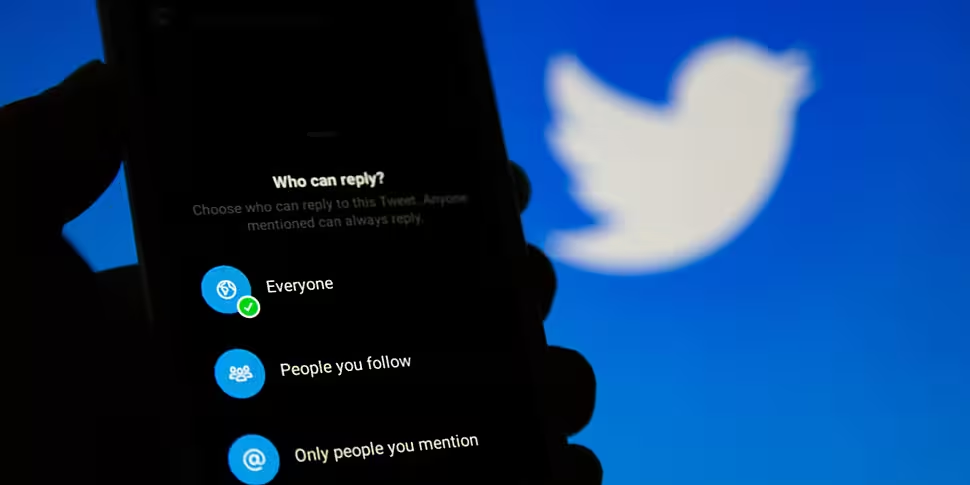Twitter is not doing 'anywhere near' enough to protect women from online abuse and threats, Amnesty International has warned.
Amnesty examined the issue of violent threats against women in its 2018 report 'Toxic Twitter', but now says just one of ten recommendations to the social media firm have been implemented.
The group has welcomed moves such as improvements to the appeals process, but has criticised a failure to introduce more transparency in the social media's overall policies.
Amnesty says the lack of action comes despite 'repeated promises' from the social media firm to address the issue.
Colm O'Gorman of Amnesty Ireland says women are still facing "torrents of abuse" online, ranging from rape threats to doxxing (when details of a person's identity are revealed online).
He told The Hard Shoulder: "Men aren't subjected to the same levels of threats of violence or abuse that women are... you don't see men commonly subjected to threats of sexual violence online... or concerted efforts to silence or intimidate them off the platform.
"If you build a platform, and facilitate online violence against women, then you have a responsibility for permitting that to happen on your platform.
"Despite the fact we have seen progress... there hasn't been anywhere near sufficient progress. Twitter and social media companies need to take this much, much more seriously."
While the human rights group has put forward a range of recommendations, Mr O'Gorman said the most important thing for Twitter is greater transparency about how they apply their own rules.
He said: "The way that Twitter applies the rules is at times opaque, and an awful lot of the times it's entirely inconsistent.
"The solution is for Twitter to moderate their platform responsibly and effectively, and act to protect their users from violence and abuse on that platform."
Mr O'Gorman said he himself now rarely reports the abuse he receives on the platform, as it is so time-consuming and a response to a report sometimes only arrives months later.
'Torrent of abuse'
Irish Examiner journalist Aoife Moore, meanwhile, said she has experienced plenty of hateful messages and threats online.
She observed: "The worst days I had on Twitter were when I wrote about racism in Ireland and the Black Lives Matter movement during the summer.
"Just the torrent of abuse from that was the worst I ever had. Somebody tried to hack into my personal Facebook at the time... I had to delete the Twitter app off my phone because it was ruining my weekend.
"That's me as a white person - I can only imagine what it's like for someone who is maybe a Traveller or ethnic minority."
Ms Moore noted her own work and experience has shown that female journalists and politicians often find themselves censoring themselves online due to the level of abuse they could receive.
She noted: "I don't tag my partner in any tweets or anything online - once somebody went through my Twitter and began tweeting at him as well and trolling him.
"Although men in public life are, of course, abused online, the type of abuse levelled at women is quite different... I know the level of abuse I get is quite different to my male colleagues.
"A lot of the people who send this violent abuse on Twitter don't use their real names, or are anonymous accounts - they're basically untraceable.
"As the old saying goes - if you wouldn't say it in front of your mammy, why would you say it on the Internet? It's because they have this anonymity they can hide behind."
However, Ms Moore stressed it's not always anonymous - saying she often gets 'really derogatory, sexist insults' from men with messages such as 'proud dad' in their Twitter bio.









